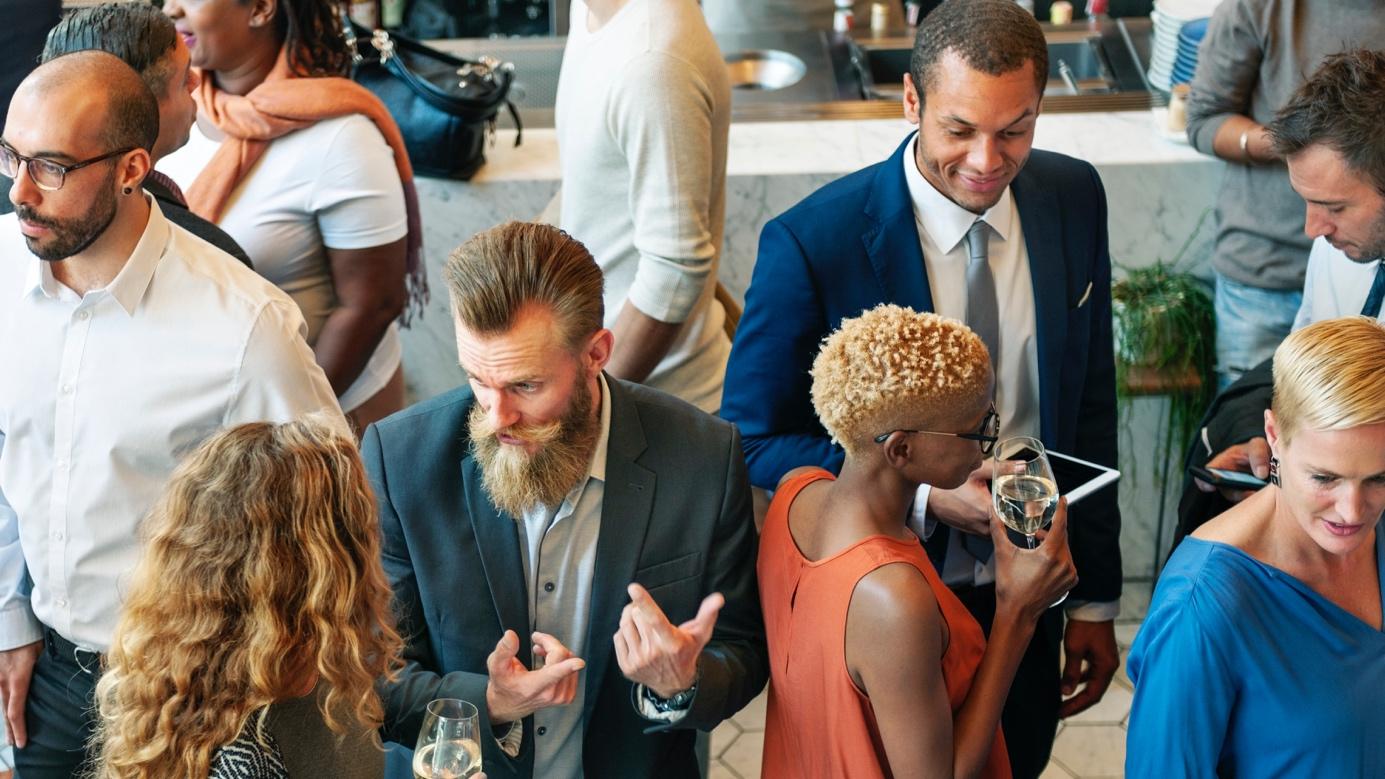How to organize a memorable business seminar: key steps and best practices

A business seminar is an ideal opportunity for federate your employees. These unifying events, generally organized outside the company, make it possible to strengthen group cohesion and promote the creativity and productivity of employees. It is a management and link creation tool that is an integral part of a company's strategic development.
There is no typical business seminar. This professional event can take a large number of forms to meet various challenges: integration, back-to-school, work seminar... Whatever type of seminar you plan to organize, discover below The steps to follow to organize a memorable event.
Step 1: Define the objectives of the seminar
Before you start organizing a business seminar, it is crucial to determine the goals you want to achieve. They will determine the type of seminar to be set up: a work seminar, a management seminar, a back-to-school seminar, a training seminar... The main objective of a work seminar, for example, will be to bring together employees to think collectively about a business project, while an integration seminar will instead be organized in order to create moments of conviviality, in order to unite the teams.
In general, a seminar is used to bring employees together in a different work context, far away from daily stress. But it must meet specific objectives that are part of the company's overall strategy. Among the most common goals, the seminar can help:
- Strengthen team cohesion and unite employees,
- Encourage innovation,
- Boosting the motivation of employees,
- Take care of their well-being at work,
- Promote your corporate culture and your brand image,
- Train your teams in new tools, techniques, strategies...
So take the time to determine what you are looking to achieve with this professional event: is your challenge to reward your teams? To celebrate a particular event? To launch a product or to present a new strategy? Also ask yourself the question of your target : will your guests only be collaborators, or customers, partners?
Step 2: Choosing the ideal location
When your goals are clearly defined, comes the key step of Choosing the ideal location. There are several factors to consider when choosing the right location:
- La reception capacity according to the number of guests.
- THEaccessibility : Make sure it is easily accessible for all participants.
- The framework : the space chosen should reflect the atmosphere of the seminar. The idea is to get out of the usual working environment, without forgetting the goals set.
- La modularity of space : is it modular and can it be adapted to the planned event activities?
- THEgear : check that the room is equipped with all the necessary equipment (video projector, sound system, wifi...).
- The budget, of course, to respect your specifications.
The location is the setting for your event: it can directly influence the atmosphere and effectiveness of the seminar. For example, if you are organizing a work seminar whose objective is to boost innovation, it will be preferable to rent a atypical space conducive to creativity, rather than a classic meeting room. Keep in mind that the location can transform a simple meeting between collaborators into a memorable experience.
There are a large number of location options depending on the challenges of your seminar, for example:
- Hotels, conference centers, meeting rooms or seminar rooms : these are rather classic choices, but they represent a safe option because the rooms are generally fully equipped and quality ancillary services are offered. This type of place is well suited for work, management, or training seminars.
- Atypical places (spaces with unique architecture, castles and historic sites, third places...): unusual spaces are becoming more and more popular with event organizers. They are in fact real catalysts for creativity and innovation, and make it possible to create impacting events.
- A place surrounded by nature : natural spaces are an ideal option to make an impression and guarantee a certain change of scenery. They are particularly suitable for the organization of integration seminars, activities of Team building, etc.
In all cases, the location chosen for the seminar must match the image of your business.

Step 3: Plan the program and activities
To succeed in your professional seminars, it is crucial to plan the program and activities accurately. The challenge is to manage to structure a balanced program between work sessions, interactive workshops, moments of relaxation and gourmet breaks. Likewise, it is advisable to avoid planning too strict a schedule, in case unforeseen events disrupt the event.
As for activities, the trend is towards original concepts, always respecting the theme of the seminar. Here are some ideas foreffective fun activities for strengthen the team spirit and the commitment of participants, as part of a team-building for example: cooking classes and gastronomic tasting, escape game, treasure hunt, Olympiads, artistic workshops, murder-party, rally, quiz...
Step 4: Manage logistics and budget
For an effective organization, especially with regard to logistical aspects, the ideal is to create a retro-planning detailed. List all the tasks to be managed in advance of the event, specifying their deadlines and the budget. This includes the management of accommodation, transport, catering and catering services, the choice of stakeholders, activities...
The event budget must be carefully established in order to avoid unpleasant surprises during the organization. This one mainly goes vary according to the type of event, the duration of the seminar, and The number of guests. The best way to stay within your budget while providing a quality experience is to call on the expertise of an event organizer. In fact, a event agency will be able to make you benefit from its large network of partners and negotiated rates, among other advantages.
Step 5: Communicating and inviting participants
The success of an event cannot be achieved without good communication in advance. La event communication is particularly important if you invite external participants to your company (service providers, customers, prospects...). A good communication strategy makes it possible to Ensuring a high level of participation and to minimize the risks of “no-shows”.
Several elements must be present on your invitation email: the date and time, the date and time, the location, the reason, the program, your contact details, a response deadline, as well as a means of registration (link to a registration form, return by email...).
The ideal is to keep it simple: the objective of the seminar should be entered in a few seconds and the The registration process should be as quick as possible. You can send your “Save the date” at least two months before the event, then schedule follow-up emails. It is recommended, especially for seminars with a large number of participants, to use tools to manage registrations. Salesforce and Hubspot are two examples of CRMs used for event management.

Step 6: Post-seminar follow-up and evaluation
The end of the seminar is a step that should not be overlooked: don't forget to gather feedback from your employees after the event in order to assess its impact. You can take advantage of your thank you email to send some photos taken during the seminar and to submit a satisfaction survey. Making this assessment will allow you to improve your next professional events.
To measure the success of your business seminar, you can use the number of participants, their level of engagement on the big day, as well as their feedback (positive and negative) from the satisfaction survey. Do not hesitate to establish some relevant KPIs before the event.
Formeret: your partner for the organization of a successful seminar
Specialists in room rental and events, the Formeret teams put their expertise at the service of all your professional events: seminars, corporate evenings and cocktail dinners, training, study days... We help you find an ideal location among our exceptional spaces in Paris.
We also offer a wide range of services and ancillary services for a turnkey experience: reception, quality audiovisual equipment, catering, relaxation areas... Do not hesitate to contact our teams to receive a free quote on request.